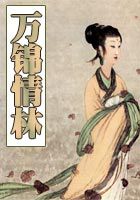These Loyalists comprised at least two groups. One of these was a wealthy, property-owning class, representing the best social element in the colonies, extremely conservative, believing in privilege and fearing the rise of democracy. The other was composed of the royal officeholders, which included some of the better families, but was more largely made up of the lower class of political and social hangers-on, who had been rewarded with these positions for political debts incurred in England. The opposition of both groups to the Revolution was inevitable and easily to be understood, but it was also natural that the Revolutionists should incline to hold the Loyalists, without distinction, largely responsible for British pre-Revolutionary policy, asserting that they misinformed the Government as to conditions and sentiment in America, partly through stupidity and partly through selfish interest. It was therefore perfectly comprehensible that the feeling should be bitter against them in the United States, especially as they had given efficient aid to the British during the war. In various States they were subjected to personal violence at the hands of indignant "patriots," many being forced to flee from their homes, while their property was destroyed or confiscated, and frequently these acts were legalized by statute.
The historian of the Loyalists of Massachusetts, James H. Stark, must not be expected to understate the case, but when he is describing, especially in New England, the reign of terror which was established to suppress these people, he writes:
"Loyalists were tarred and feathered and carried on rails, gagged and bound for days at a time; stoned, fastened in a room with a fire and the chimney stopped on top; advertised as public enemies, so that they would be cut off from all dealings with their neighbors; they had bullets shot into their bedrooms, their horses poisoned or mutilated; money or valuable plate extorted from them to save them from violence, and on pretence of taking security for their good behavior; their houses and ships burned; they were compelled to pay the guards who watched them in their houses, and when carted about for the mob to stare at and abuse, they were compelled to pay something at every town."
There is little doubt also that the confiscation of property and the expulsion of the owners from the community were helped on by people who were debtors to the Loyalists and in this way saw a chance of escaping from the payment of their rightful obligations. The "Act for confiscating the estates of certain persons commonly called absentees" may have been a measure of self-defense for the State but it was passed by the votes of those who undoubtedly profited by its provisions.
Those who had stood loyally by the Crown must in turn be looked out for by the British Government, especially when the claims of justice were reinforced by the important consideration that many of those with property and financial interests in America were relatives of influential persons in England. The immediate necessity during the war had been partially met by assisting thousands to go to Canada--where their descendants today form an important element in the population and are proud of being United Empire Loyalists--while pensions and gifts were supplied to others. Now that the war was over the British were determined that Americans should make good to the Loyalists for all that they had suffered, and His Majesty's Commissioners were hopeful at least of obtaining a proviso similar to the one relating to the collection of debts. John Adams, however, expressed the prevailing American idea when he said that "paying debts and compensating Tories" were two very different things, and Jay asserted that there were certain of these refugees whom Americans never would forgive.
But this was the one thing needed to complete the negotiations for peace, and the British arguments on the injustice and irregularity of the treatment accorded to the Loyalists were so strong that the American Commissioners were finally driven to the excuse that the Government of the Confederation had no power over the individual States by whom the necessary action must be taken. Finally, in a spirit of mutual concession at the end of the negotiations, the Americans agreed that Congress should "recommend to the legislatures of the respective states to provide for the restitution" of properties which had been confiscated "belonging to real British subjects," and "that persons of any other description" might return to the United States for a period of twelve months and be "unmolested in their endeavours to obtain the restitution."
With this show of yielding on the part of the American Commissioners it was possible to conclude the terms of peace, and the preliminary treaty was drawn accordingly and agreed to on November 30, 1782. Franklin had been of such great service during all the negotiations, smoothing down ruffed feelings by his suavity and tact and presenting difficult subjects in a way that made action possible, that to him was accorded the unpleasant task of communicating what had been accomplished to Vergennes, the French Minister, and of requesting at the same time "a fresh loan of twenty million francs." Franklin, of course, presented his case with much "delicacy and kindliness of manner" and with a fair degree of success. "Vergennes thought that the signing of the articles was premature, but he made no inconvenient remonstrances, ill procured six millions of the twenty."* On September 3, 1783, the definite treaty of peace was signed in due time it was ratified by the British Parliament as well as by the American Congress. The new state, duly accredited, thus took its place in the family of nations; but it was a very humble place that was first assigned to the United States of America.
* Channing, "History of the United States," vol. III, p. 368.














